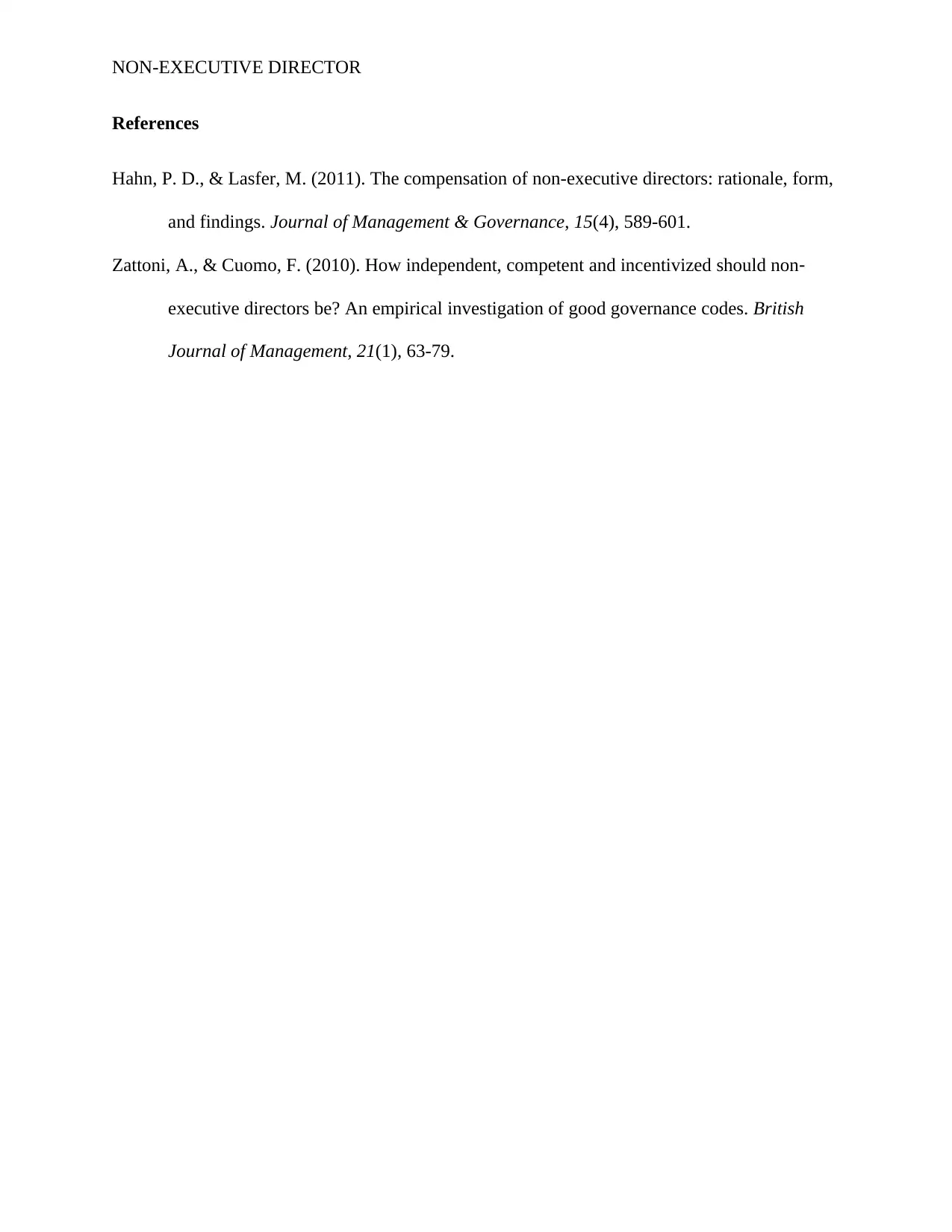Non-Executive Director Report: Analysis of Roles and Duties
VerifiedAdded on 2023/06/04
|4
|513
|112
Report
AI Summary
This report examines the role and responsibilities of non-executive directors (NEDs) within a company. It defines the role of a non-executive director, as someone not part of the executive team, but who contributes to organizational planning and policy-making. The report emphasizes the importance of NEDs in providing independent oversight, challenging executive directors, and ensuring proper organizational function. The report also discusses the qualifications required for NEDs, stating that the role is less about formal qualifications and more about the individual's ability to fit the needs of the organization. The report highlights the legal duties and liabilities of NEDs, similar to those of executive directors. The report also provides references for further reading.
1 out of 4











![[object Object]](/_next/static/media/star-bottom.7253800d.svg)